China’s global proxy game
Afghanistan has become the first significant theatre of effective confrontation between the West and China. But with its deep-rooted economic ties, could the U.S. and NATO actually confront China?
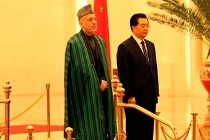 Courtesy: Afghanistan Goverment/WikimediaCommons
Courtesy: Afghanistan Goverment/WikimediaCommons
Afghanistan has become the first significant theatre of effective confrontation between the West and China. But with its deep-rooted economic ties, could the U.S. and NATO actually confront China?
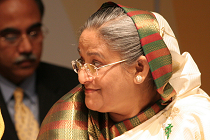 Courtesy: US Mission Geneva/Flickr
Courtesy: US Mission Geneva/Flickr
Bangladesh Prime Minister Sheikh Hasina's visit to Tripura marks a turning point in India-Bangladesh relations. The two countries share an extraordinary history, but the key to India's engagement with Bangladesh is through Tripura.
India and Japan have designed their collaborations over the years to be a win-win for both sides. Now, they are willing to collaborate on long-term initiatives, based on intrinsic factors of inter-dependent competencies – rather than on the defence of an extrinsic threat of a common enemy.
 Courtesy: nazeah/Wikimediacommons - Ramesh Lalwani/Flickr
Courtesy: nazeah/Wikimediacommons - Ramesh Lalwani/Flickr
The year 2011 saw various events - the Arab Spring, anti- corruption protests, Europe's sovereign debt crisis - transform countries and reshape the world order. Gateway House takes a look at what these events mean for India, and presents India's top foreign policy cheers and jeers for the year.
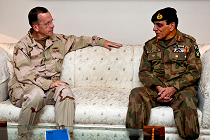 Courtesy: U.S.ArmedForces/WikimediaCommons
Courtesy: U.S.ArmedForces/WikimediaCommons
The 'memogate' fiasco in Pakistan highlights, yet again, the tensions that exist between the country’s political establishment and the Pakistan Army. While the final acts of this maneuvering are being played out, will the all-powerful Army continue to push the civilian government into a corner?
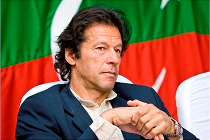 Courtesy: Jawad Zakariya/WikimediaCommons
Courtesy: Jawad Zakariya/WikimediaCommons
Imran Khan, leader of the Pakistani political party Tehreek-e-Insaaf, means well, and has the support of many in his country. But without any solid reforms manifesto, and almost no one in his party to implement his plan, what really are his chances in the upcoming elections?
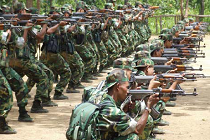 Courtesy: Manipur Police/WikimediaCommons
Courtesy: Manipur Police/WikimediaCommons
What have economic blockades in India's North East achieved? For one, they choked off the supply chain of an already isolated region. With Myanmar showing signs of warming towards India, New Delhi must establish ties with its eastern neighbour, but first, it needs to fix Manipur’s broken socio-political landscape.
 Courtesy: Michael Trolove/WikimediaCommons
Courtesy: Michael Trolove/WikimediaCommons
Growing instability in the region make the planned Turkmenistan-Afghanistan-Pakistan-India (TAPI) gas pipeline seem more like a burden than a solution to India’s hunt for alternative energy sources. Is it wise for India to move ahead with the $7.6 billion project?
 Courtesy: UN Photo/Paul Banks
Courtesy: UN Photo/Paul Banks
After the crass misuse of Responsibility to Protect (R2P) in Libya, the broader question is: where is R2P headed? Do the events in Libya herald a more explicit assertion of this doctrine in other parts of the world? And should India rethink its viewpoint towards this ambiguous doctrine?
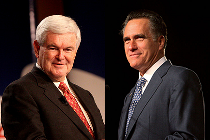 Courtesy: Gage Skidmore/WikimediaCommons
Courtesy: Gage Skidmore/WikimediaCommons
The U.S. presidential race for 2012 is on, and the Republican Party will see a Gingrich vs Romeny face-off. One must, however, invoke the cliché that ‘a week is too long in politics’ as an insurance against faulty predictions.